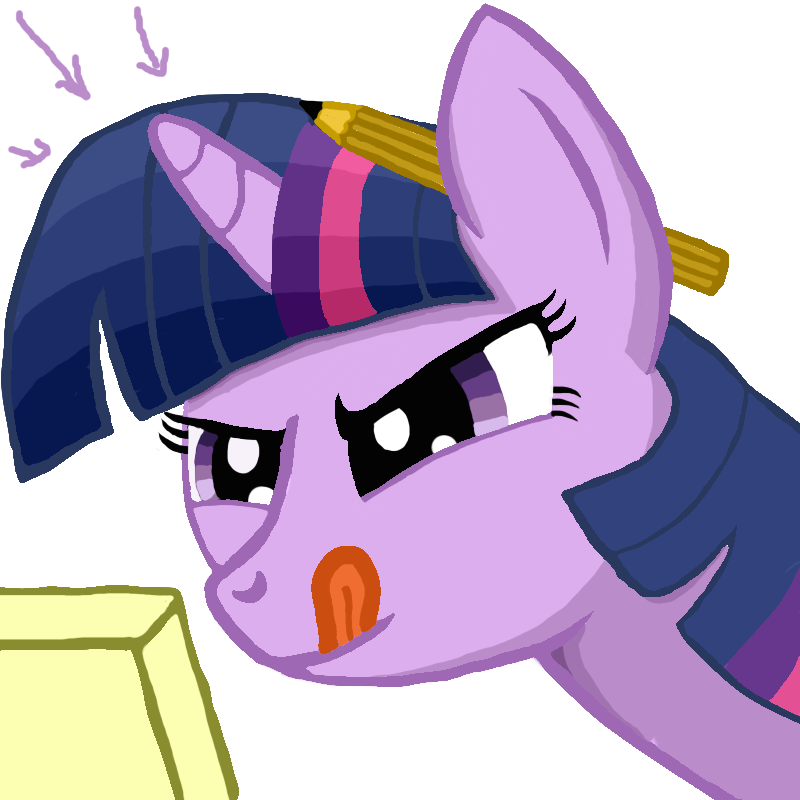A critique is not an analysis. It is not a job. It's not even about the individual work.
It is a learning discussion on art. That's it.
The purpose is not to fix the individual artwork. It's to help the artist so that next time their thinking about art has improved so that their art improves.
An anatomy focused critique should be reserved for about one tenth the posts here and zero of the beginning posts. (unless it's messing up the composition, it isn't the important part) Why? Because anatomy may be what is off, but not why the pony is off. A thorough knowledge of anatomy isn't built by a million little corrections and getting a large list can often be intimidating. It's built by the artists themselves changing how they observe the work.
 Some people really like giving and receiving long critiques and anatomy focused critiques.
Some people really like giving and receiving long critiques and anatomy focused critiques. Over time get to know your fellows and how they respond.
Over time get to know your fellows and how they respond. Artists are friends, not food.
Artists are friends, not food.Let me be redundant: Learning what is wrong with the individual elements of a piece is not as important as an artist learning how to see these things in the future
 Think bigger picture. Help them for tomorrow.
Think bigger picture. Help them for tomorrow. Spread knowledge. Link to the guides!
Spread knowledge. Link to the guides!Observation
It is up to the artist themselves to build their interpretation of how the pony is put together.
 In the past I've recommended VERY specific and long lists of corrections within critiques.
In the past I've recommended VERY specific and long lists of corrections within critiques. I now know that as a very derpy thing to do, as too much at a time is impossible to and only gives answers to very specific questions and doesn't provide future process answers.
I now know that as a very derpy thing to do, as too much at a time is impossible to and only gives answers to very specific questions and doesn't provide future process answers. Link to the guides!
Link to the guides!It's not about the particulars of what would fix this drawing but rather, how the person can change their process in the future. So,
How do you help people?
 Link to the guides!
Link to the guides!Give them tools to use
Measuring and comparing, angle observing, words about impressions, link to guides, words on volume, how you think about the problem, your personal experience, exercises to do.
Answer questions
Seriously. Do it like a boss. Questions are them trying to learn. Why wouldn't you encourage that?
 You can also link to the guides!
You can also link to the guides!Have questions
If they don't ask any, encourage them to. You should ask them some too. What do they want to learn? Where do they want to go in art? What artists do they like? Questions facilitate introspection and thinking. Something seems off, be it the composition, the pose, the eyes, the ear, the mood, what be it. Gvie hints, show off references and ask them questions like "what mood were you trying for?" or "what seems off about the eyes to you?"
 Not... not critical thinking!
Not... not critical thinking! That's not true... that's impossible!
That's not true... that's impossible! Hey you know those guides that're out there? Link to them.
Hey you know those guides that're out there? Link to them.Be positive
This is the most important. A critique is not a disassembling, dry analysis. It's a discussion. Talk to the artist like they're a person, not a problem. Keep it simple stu-dent.
Keep in mind
 Just a little note... um... if you don't mind
Just a little note... um... if you don't mind Art is subjective. Ridiculously so.
Art is subjective. Ridiculously so. Something you like or may think is wrong another person many enjoy.
Something you like or may think is wrong another person many enjoy. So... just remember... we could all use a little kindness.
So... just remember... we could all use a little kindness. Also... about them there guides...
Also... about them there guides... People come here expecting direction, why not give it to em?
People come here expecting direction, why not give it to em?To facilitate the direction of critiques and their general improvement, you may find me critiquing critiques.
 Because I'm a jerk.
Because I'm a jerk.As always, questions, comments, queries, and concerns welcome.
